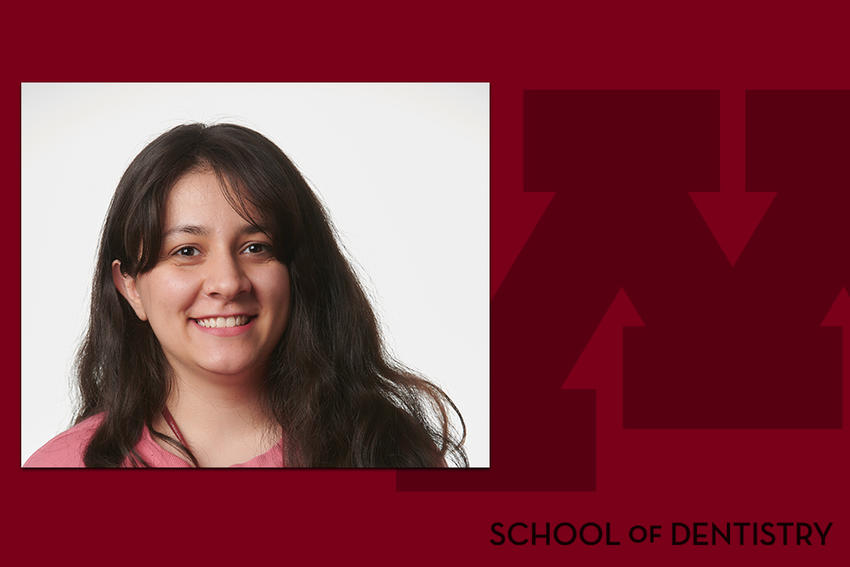Pursuing research and practice with a dual degree

When it came time to decide on a post-graduate path, Parandis Kazemi didn’t want to have to choose between her two passions. The School of Dentistry allowed her to keep her options open, pursuing both research and practice, thanks to a dual degree program.
After Kazemi, MS/DDS ’25, graduated from the University of Toronto, she figured she would pursue dental studies. However, she also considered pursuing graduate school. “I wanted to get a master’s degree in bioinformatics and computational biology since I was fascinated by the implications and use of computational methods to understand the biological basis of health and disease,” she said. “I also aspired to become a dentist.” When she found the University of Minnesota, she was thrilled to discover that she could do both through the DDS/MS dual-degree program. She first applied and was accepted to the DDS program, then applied for the Master of Oral Biology program.
Kazemi first pursued her master’s degree in oral biology, with a minor in bioinformatics and computational biology. She currently studies the downstream targets of the protein Kinase D, and its role in osteoclast function. “I utilize a series of bioinformatics and molecular biology tools to answer that question,” she explained. She will defend her thesis and complete the requirements of the master’s degree this summer.
An unexpected challenge to those research goals came in the form of funding. Because Kazemi is an international student, she is ineligible for many of the traditional fellowships and grant funds students in her position might receive. “Though that limits the opportunities for international students interested in dual degree programs, the program did not give up on me,” Kazemi said. She received a graduate assistantship and support from the Student Emergency Fund in lieu of these grants options. “That is a positive move toward establishing equal opportunities for all students, and I am utterly grateful for it.”
Kazemi shares her gratitude for the school’s investment in research, especially Dean Keith Mays, DDS, MS, PhD, “who has provided this unique opportunity for enhancing my education in the dental field by pursuing research.”
Kazemi is particularly grateful because of her love for research. . “We can dare to ask more sophisticated questions about the connections between different constituents of our body, and understand the complex processes that define oral health.”
However, Kazemi also loves practice—which is why she’s so excited to be pursuing her DDS degree now. “As a dentist, one can greatly impact society at an individual level: helping people with an immediately-visible outcome.”
But perhaps what she loves most is what this program has uniquely provided for her: a chance to explore research and practice at the same time.
“Having expertise in both fields helps me ask the right questions and make more meaningful connections,” she reflected. “Research and practice constantly refine and redefine each other.”